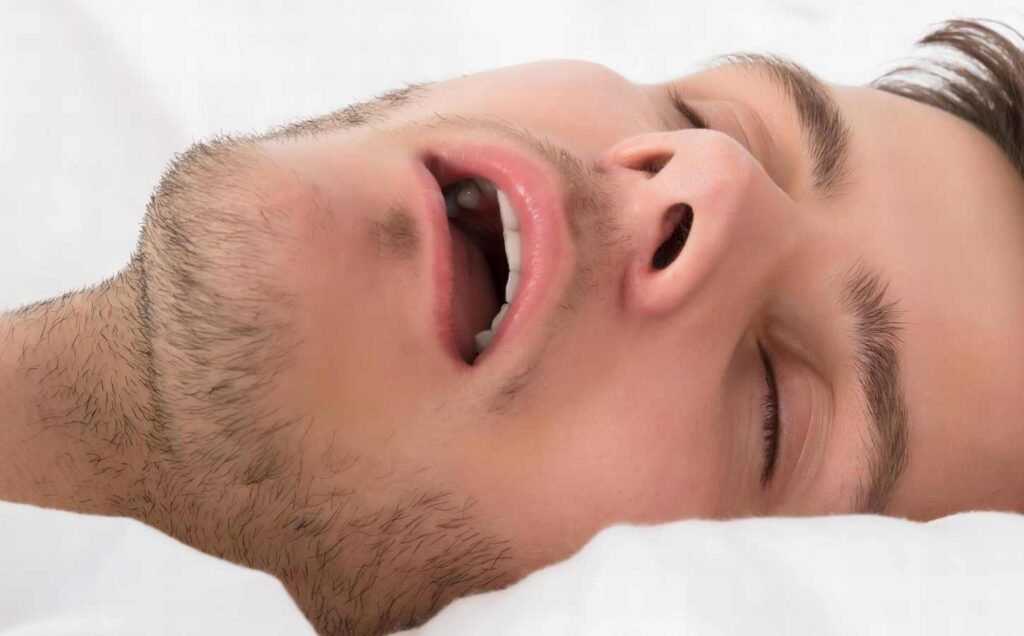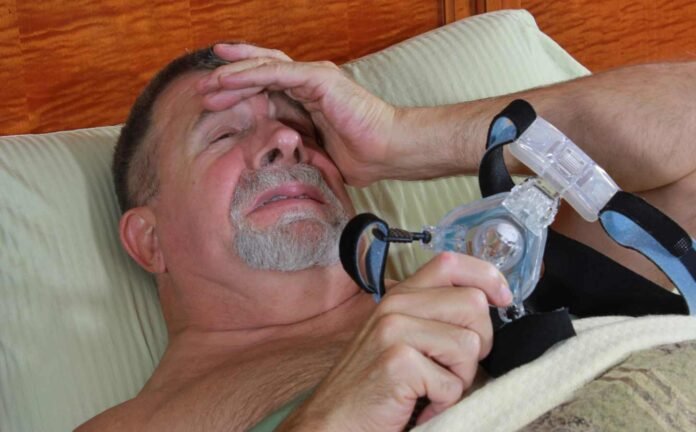Maxillomandibular advancement surgery is a treatment option for patients with obstructive sleep apnea who have not found relief with other treatments.
Obstructive sleep apnea (OSA) is a disorder in which a person’s breathing repeatedly stops and starts during sleep, leading to poor sleep quality and other health complications. Maxillomandibular advancement (MMA) surgery involves moving the upper and lower jaws forward to increase the size of the airway and reduce the severity of OSA.
Maxillomandibular advancement surgery is typically reserved for patients with severe OSA who have not found relief with other treatments such as Continuous Positive Airway Pressure (CPAP) therapy. CPAP therapy involves wearing a mask over the nose or mouth during sleep to keep the airway open. However, some patients find CPAP therapy uncomfortable or have difficulty tolerating it. MMA surgery may be a more effective option for these patients.
While Maxillomandibular advancement surgery has been shown to be effective in reducing the severity of OSA, it is not without risks. Complications of MMA surgery can include infection, bleeding, and changes in bite or facial appearance. Patients considering MMA surgery should discuss the risks and benefits with their healthcare provider to determine if it is the right treatment option for them.
Maxillomandibular Advancement Surgery Overview
Surgical Procedure
Maxillomandibular advancement (MMA) surgery is a surgical procedure that involves moving the upper and lower jaws forward to enlarge the upper airway and reduce the severity of obstructive sleep apnea (OSA). This surgery is typically performed under general anesthesia and involves making cuts in the upper and lower jaws to move them forward. The procedure may also involve repositioning the soft tissue of the upper airway to further increase the size of the airway.
Benefits and Risks
The primary benefit of MMA surgery is a significant reduction in the severity of OSA, which can lead to improved sleep quality and overall health. However, there are also risks associated with the surgery, including bleeding, infection, and nerve damage that can result in paresthesia or numbness in the face or mouth.
Patient Selection and Evaluation
Maxillomandibular advancement surgery is typically reserved for patients with moderate to severe OSA who have failed to respond to other treatments, such as continuous positive airway pressure (CPAP). Patients who are considering MMA surgery will undergo a thorough evaluation, including assessment of their upper airway anatomy, preoperative apnea-hypopnea index (AHI), body mass index (BMI), and comorbidities. These factors can help predict surgical success and identify patients who are at increased risk for complications.
In conclusion, MMA surgery is a potentially effective treatment for OSA, but it is not without risks. Patients should be carefully evaluated and selected for surgery based on their individual characteristics and medical history.
Clinical Outcomes and Postoperative Care
Measuring Success
The success of maxillomandibular advancement (MMA) surgery for sleep apnea is typically measured by improvements in the apnea-hypopnea index (AHI), oxygen saturation nadir, and the Epworth Sleepiness Scale (ESS) score. A meta-analysis of 23 studies found that MMA surgery resulted in a significant reduction in AHI, with a mean decrease of 33.5 events per hour. Oxygen saturation nadir also improved significantly, with a mean increase of 6.7%. ESS score was also significantly reduced, with a mean decrease of 6.6 points.
Recovery and Management
After MMA surgery, patients typically experience swelling and pain, which can be managed with pain medication and ice packs. Recovery time varies, but most patients can return to work within 2-4 weeks. It is important for patients to maintain good oral hygiene and avoid hard or chewy foods for several weeks after surgery.
Long-Term Effects
Studies have shown that MMA surgery can have long-term benefits for patients with sleep apnea. A systematic review of 12 studies found that MMA surgery resulted in significant improvements in AHI, respiratory disturbance index (RDI), and oxygen desaturation index (ODI) up to 5 years post-surgery. The lowest oxygen saturation also improved significantly, with a mean increase of 5.5%.
Quality of life and daytime sleepiness also improved significantly after MMA surgery. A study of 50 patients found that 96% of patients reported improvement in their quality of life, and 92% reported improvement in their daytime sleepiness. MMA surgery may also have cardiovascular benefits, as studies have shown that it can reduce the risk of hypertension and other cardiovascular diseases in patients with sleep apnea.
Overall, MMA surgery is a safe and effective treatment option for patients with sleep apnea who have not responded well to CPAP therapy or other treatments. Polysomnography and other sleep studies can help determine if MMA surgery is the right option for a patient, and careful postoperative care can help ensure a successful outcome.
Obstructive Sleep Apnea: Causes, Symptoms, and Treatment

The most common symptom of Obstructive Sleep Apnea is loud and persistent snoring, which is often accompanied by gasping or choking sounds during sleep. Other symptoms may include excessive daytime sleepiness, morning headaches, difficulty concentrating, and irritability. OSA is more common in people who are overweight or obese, have a family history of the disorder, or have a small airway or other anatomical abnormalities that can contribute to airway obstruction during sleep.
Continue reading: Obstructive Sleep Apnea
Understanding Circadian Rhythm: The Body’s Natural Clock Explained

Circadian rhythms are physical, mental, and behavioral changes that follow a roughly 24-hour cycle, responding primarily to light and darkness in an organism’s environment. These rhythms are driven by an internal biological clock, which is known as the circadian clock or the biological clock.
Continue reading: Understanding Circadian Rhythm



